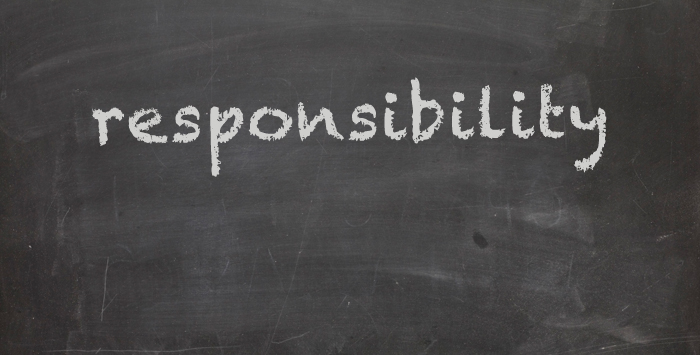 Who are you responsible for or to? Well, first of all, you are responsible for yourself…specifically your actions and behavior. You also may be responsible for your family, for your work team, and you may even take responsibility for your community and beyond.
Who are you responsible for or to? Well, first of all, you are responsible for yourself…specifically your actions and behavior. You also may be responsible for your family, for your work team, and you may even take responsibility for your community and beyond.Just how responsible do you feel to others? You may think “It depends.”
The news recently of yet another case of sexual harassment – this time with movie mogul Harvey Weinstein – got me thinking. Do we as employers, leaders, bosses, or co-workers have any responsibility for shedding light on sexual harassment when it doesn’t “involve” or “impact” us? Unfortunately, people don’t want to get involved because they figure it’s not “their” problem. Nothing could be further from the truth. Every one of us is responsible to get actively involved in stopping this pervasive societal problem.
Most company employee manuals contain a section on inappropriate behavior in the workplace and even more specific retribution for sexual harassment. As we have learned through some national media examples, even for some companies who do have it in writing, those rules can still be violated, and the perpetrator’s actions are often quietly tolerated and ignored.
Specific language, whether verbal or nonverbal, provides context and meaning when it comes to sexual harassment. For example, there is a difference between a man telling a female co-worker, “You look great” and “Wow, that dress really shows off all of your curves, and in just the right places too.” And if the latter statement is accompanied by any physical contact, that’s sexual harassment.
If you see it, if you hear it, or if you experience it, then take responsibility and give voice to it. Don’t be silent. Nothing is more painful than hearing someone say “We all knew how he was.” Sorry. That answer just isn’t good enough. If inappropriate behavior is happening, people need to say or do something. Perpetrators may think their comments are innocent or no big deal. They may believe there is nothing wrong with making lewd comments. It’s time to educate people.
Some of my colleagues and friends have shared their personal experiences with sexual harassment by joining the #MeToo and #MeToo Men movements on Twitter and Facebook. The volumes of posted comments demonstrate that this remains a problem in our society, and it can no longer be tolerated. It’s not just women who are harassed; men are sexually harassed too. An excellent article from United Nations Women (UN Women) calls for men getting involved in speaking out in sexual crimes against women.
So the next time you pause, hesitate, or question if you should address the issue or have a confidential talk with another person, remind youreself that you have the power to shut down sexual harassment. Your stepping forward could save innocent people from becoming victims.
